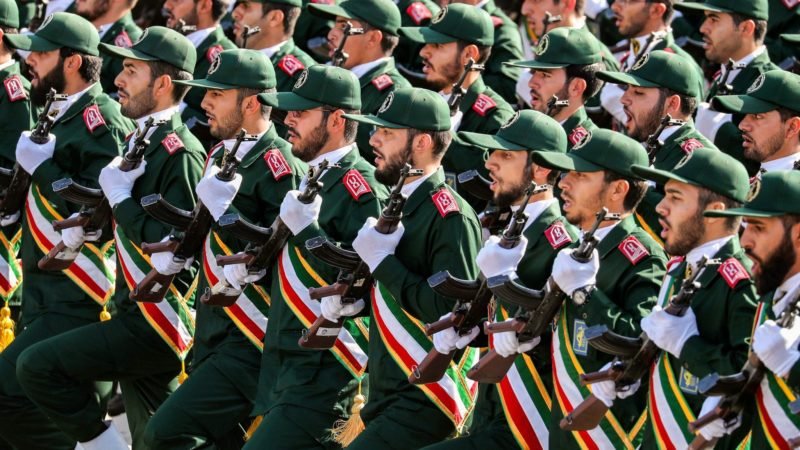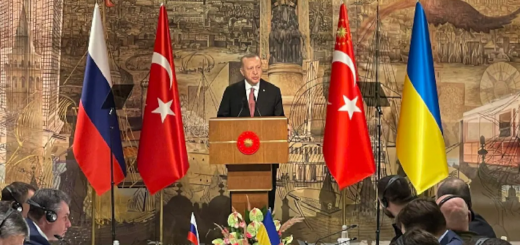Iran’s Foreign Policy and the IRGC’s Role

Iran’s Foreign Policy has traditionally been regarded as one of the most complex foreign policies followed by any state internationally. Iran’s nature as a theocratic republic, in the post-Westphalia nation-state system further complicated a comprehensive analysis of the nation’s foreign policy, often resulting in generalisation and stereotyping by western scholars. 1979 remains a watershed in the assessment of Iranian foreign policy, as the year saw the Islamic revolution which overthrew the monarchy and bought Ayatollah Ruhollah Khamenei into power and changed Iran’s view of the world as well as the perception of Iran in the international community. The revolution itself gave birth to the IRGC or the Iranian Revolutionary Guards Corps, which remains as a paramilitary directly under the supervision of the Supreme Leader.

Earlier this year, the United States assassinated General Qassem Soleimani in a drone strike, which was followed by large rallies throughout Iran and various Shiite communities throughout the world. The popularity of the general was just next to the Ayatollah himself and was treated as a legend in the Iranian lexicon of great leaders. This killing and the reaction from the Iranian regime makes one question about the extent of the role of IRGC in the foreign policy of the Islamic Republic of Iran.
“The key issue with Iran is whether it sees itself as a cause or as a nation”
– Henry Kissinger
The aforementioned statement by Henry Kissinger is a very relevant one. As the Iranian foreign policy to this day is a complex concoction of ideological and realist tendencies. Since the Islamic revolution, one strain of the Iranian foreign policy establishment and elite carries forward the agenda of exporting the Islamic revolution to the neighbouring Islamic countries for the creation of an Islamic Ummah. They emphasise upon the rich historical Persian culture and influence in the region and seek to maintain it as it existed in the past. While another section of the policy establishment calls for a more realist approach which prioritises Iran’s national development and is staunchly against Iranian revolutionary actions to export the revolution. This group is credited for the first time in post-revolutionary Iranian history to come up with the concept of national interest. West has generally failed to understand the complex Iranian foreign policy establishment and focuses in its entirety on the expansionist revolutionary strain of Iranian foreign policy. Yet, the parallel nature of institutions in Iran results in the Iranian foreign policy walking a tightrope between the two strains.
Coalitions in the selectorate, radical or reformist have a relatively lesser say in the foreign policy domain, as they are eventually guided by the Supreme Leader directly or indirectly.
Institutions in the post-revolutionary Iran are modelled in a way to ensure ‘Regime security’. The party system in the nation remains weak, and institutions like the Expediency council and the IRGC have been made by the Ayatollahs to ensure regime security and balance the politicians in the parliament. Iran is the only country in the world with two separate military commands. The first being the conventional military comprising of the army, navy and air force. The second being the IRGC, which has its own 1,50,000 strong army, navy and air force and is in direct control of the Supreme leader, thus bypassing the President’s authority. The IRGC is tasked with among other tasks in ensuring internal and external security. It has generally complemented the army in controlling Iran’s internal ethnic troubles.
The excessive trust on the IRGC comes from its role in the Iran-Iraq war and its allegiance to the Supreme Leader. Besides this, the corps is charged with the security of the Persian Gulf, through which one-fifth of the world’s oil and gas supplies transit. It is responsible for the nation’s nuclear program and ballistic missiles and exercises great public support through the Basij- which is a 6,00,000 strong people’s militia under IRGC’s auspices.
Iran over time has followed a diversionary war theory, where it has used legitimate action in the external sphere to pursue legitimacy in the domestic affairs of the state. In the Iranian context, the Supreme Leader, IRGC and affiliate outfits call on the nation to rally behind perceived external threats like the US, Israel and Saudi Arabia’s influence in the region to divert their attention from the everyday issues and thus ensure internal unity and complete control.

The IRGC and the Supreme Leader though have developed a symbiotic relationship, where the IRGC through its expeditionary actions and training of proxies across the Levant in Iraq, Syria and Lebanon ensure a land passage for Iranian influence in the region, and in return gets enriched with contracts and involvement in business activities through Bonyads or charitable trusts which are operated by individual IRGC men.
The IRGC over time has aided and strengthened the Hezbollah in Lebanon and have bought them at par with the military capabilities of the Lebanese state. In Iraq, post the 2003 war, it has ensured that Iran has an influence and Iraq which was initially seen as a counterweight to Iran was thus co-opted by the IRGC and its affiliate Quds force, headed by General Qassem Soleimani.
His cult-like following stems from his achievements like his incorporation of Iranian supported armed groups like the Badr organisation into the regular Iraqi army and his ability to convince the Iraqi Shiite and Kurdish leaders in accepting Nouri-al Maliki as the PM and Jalal Talabani as the Iraqi President.
The IRGC further ensured the regime stability of President Bashar al-Assad in Syria by sending in its troops and by aiding and training pro-Assad factions with Russian help. President Rouhani has tried to reduce the IRGC’s influence over the state’s affairs both internal and external and has tried to liberalise by allowing European companies to come in and invest in Iran, which has been time and again rejected by the IRGC as it further dilutes its role and authority in making and influencing policies and generating the revenue necessary for Iran’s ambitious influence in the region and regime security. Similarly, when the reformist President Khatami tried to liberalise after his 1997 election, Khomeini further bolstered the IRGC to block the reforms advocated by him. Another way, in which the IRGC and the Quds force influence Tehran’s foreign policy is by acting as a counterweight to the moderates in the nation by taking a hard-line stance, which often is adventurism overseas or in its external zone of influence to avoid Iran’s excessive cosying up to the US and the west.
These IRGC operations in the region have shattered the hopes of several moderate leaders like President Khatami and President Rafsanjani in the past.

Conclusion
Despite the fact that the Arab and the US military in the region is better equipped and has more resources in the region, the IRGC’s asymmetric warfare capabilities remain unmatched and often give Tehran the upper hand in conflicts through its support to proxies or IRGC’s deployment.
Tehran’s economy depends upon oil, and hence it remains the key to his regime security. Thus, if sanctions or western military presence in the Persian Gulf cut off Iran’s oil exports, people may revolt against the government and question the Supreme Leader’s authority. Here the IRGC has followed a two-pronged approach in countering such consequences. Externally, it controls the Persian Gulf and ensures the trade routes for its exports are open and no foreign military presence disrupts the same. The 2019 incident where a couple of oil tankers were damaged allegedly by the IRGC Navy’s limpet mines is a testament to latter’s capabilities and to the lengths it can go to ensure the interests of Tehran and the Supreme Leader. Internally, the IRGC has been called time and again to suppress civil unrests and calls for revolutions against the regime.
The November 2019 protests and their suppression resulted in about 1,500 deaths. Thus, now we can assess Henry Kissinger aforementioned quote regarding Iran being a cause or a nation. Iran until the 1980s was a cause and indeed certain factions in power wanted to export the revolution. However, in recent years Tehran’s actions have been pragmatic and driven by what it perceives to be its national interests. It has mobilised soft power as well as hard military power towards the fulfilment of its national interests. Iran’s perceives itself as the counterweight to the Saudis and their influence in the Muslim world, but have failed to garner much support due to the face that it’s a Shiite country and has far less support and influence than the Sunni Arab states.


















